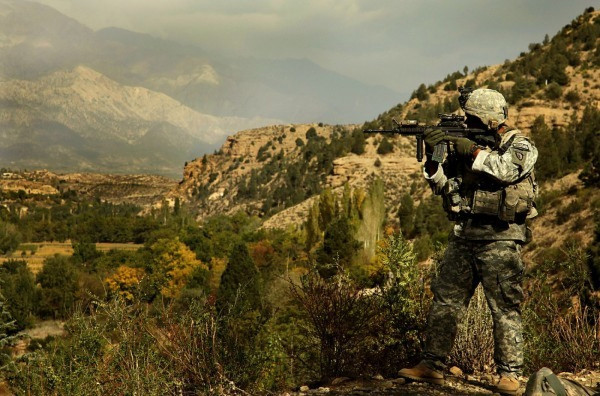Afghanistan War Withdrawal Begins as First U.S. Troops Depart

Th United States' slow withdrawal from the Afghanistan War has begun, as the first wave of soldiers departed the country without other troops rotating in to replace them.
About 650 troops left Afghanistan on Wednesday, a small number that nonetheless initiates President Barack Obama's recently announced plan for an accelerated withdrawl of troops from what has become America's longest ever conflict. In all, 10,000 troops are expected to leave by the end of the year, with the full 33,000 additional surge troops Obama committed in 2009 to be withdrawn by the following summer.
As part of the drawdown the first U.S. troops have left Afghanistan, International Security Assistance Force spokesman Lt. Col. Wayne Perry confirmed to Reuters.
In a highly anticipated June speech, Obama laid out his strategy to exit Afghanistan amidst mounting domestic pressure to end the costly and seemingly intractable conflict. In his speech Obama said it was time to focus on nation-building at home, an acknowledgment of the conflict's tremendous financial drain at a time when the U.S. economy is still foundering.
Still, even after the surge troops have left there will still be approximately twice as many troops in the country as when Obama assumed office, reflecting the extent to which a muscular approach to Afghanistan has been a focus of his foreign policy. In 2009, U.S. casualties in Afghanistan eclipsed casualties in Iraq. In 2010, spending on Afghanistan surpassed spending on Iraq.
The U.S. is likely to serve a role in the country and the region, albeit a diminished one, for years to come. A recent U.S. Senate report on aid to Afghanistan depicted the country's heavy dependence on American largesse and cautioned that a sudden exodus of American aid could plunge the country into an economic crisis, adding that the country remains reliant on U.S. advisers. Obama has also expanded a program of covert, targeted military strikes as America's main counterterrorism strategy.
© Copyright IBTimes 2024. All rights reserved.





















